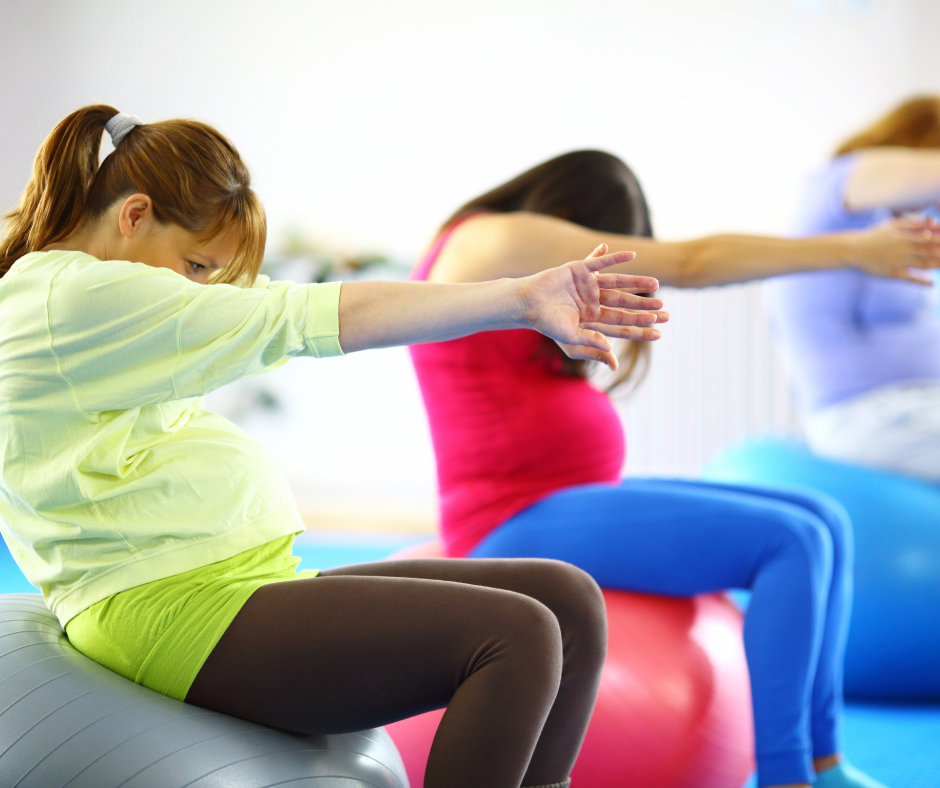If you are healthy and your pregnancy is normal, it is safe to continue or start regular physical activity. The more active and fit you are during pregnancy, the easier it will be for you to adapt to your changing shape and weight gain. It will also help you to cope with labour.
Keep up your normal daily physical activity or exercise (sport, running, yoga, dancing, or even walking to the shops and back) for as long as you feel comfortable.
Exercise is not dangerous for your baby. There is evidence that active women are less likely to experience problems in later pregnancy and labour. Physical activity does not increase your risk of miscarriage, low birth weight, or early delivery.
It’s still important to discuss exercise with your obstetrician–gynaecologist (ob-gyn) during your early prenatal visits. If your ob-gyn gives you the OK to exercise, you can discuss what activities you can do safely.
There are certain conditions that make exercise during pregnancy unsafe:
- Certain types of heart and lung diseases
- Cerclage
- Being pregnant with twins or triplets (or more) with risk factors for preterm labour
- Placenta previa after 26 weeks of pregnancy
- Preterm labour during this pregnancy or ruptured membranes (your water has broken)
- Preeclampsia or pregnancy-induced high blood pressure
- Severe anaemia
What are the benefits of exercise during pregnancy?
Regular exercise during pregnancy benefits you and your baby in these key ways:
- Reduces back pain
- Eases constipation
- May decrease your risk of gestational diabetes, preeclampsia, and caesarean birth
- Promotes healthy weight gain during pregnancy
- Improves your overall fitness and strengthens your heart and blood vessels
Exercise tips for pregnancy
Do not exhaust yourself. You may need to slow down as your pregnancy progresses or if your maternity team advises you to. If in doubt, consult your maternity team.
As a general rule, you should be able to hold a conversation as you exercise when pregnant. If you become breathless as you talk, then you’re probably exercising too strenuously.
If you were not active before you got pregnant, do not suddenly take up strenuous exercise. If you start an aerobic exercise programme (such as running, swimming, cycling or aerobics classes), tell the instructor that you’re pregnant.
Remember that exercise does not have to be strenuous to be beneficial.
Exercise tips when you’re pregnant:
- Always warm up before exercising, and cool down afterwards
- Try to keep active on a daily basis – 30 minutes of walking each day can be enough, but if you cannot manage that, any amount is better than nothing
- Avoid any strenuous exercise in hot weather
- Drink plenty of water and other fluids
- If you go to exercise classes, make sure your teacher is properly qualified and knows that you’re pregnant, as well as how many weeks pregnant you are
- You might like to try swimming because the water will support your increased weight. Some local swimming pools provide aqua-natal classes with qualified instructors.
- Exercises that have a risk of falling, such as horse riding, downhill skiing, ice hockey, gymnastics and cycling, should only be done with caution. Falls carry a risk of damage to your baby
Exercises to avoid in pregnancy
- Do not lie flat on your back for long periods, particularly after 16 weeks, because the weight of your bump presses on the main blood vessel bringing blood back to your heart and this can make you feel faint
- Do not take part in contact sports where there’s a risk of being hit, such as kickboxing, judo or squash
- Do not go scuba diving, because the baby has no protection against decompression sickness and gas embolism (gas bubbles in the bloodstream)
- Do not exercise at heights over 2,500m above sea level – this is because you and your baby are at risk of altitude sickness

